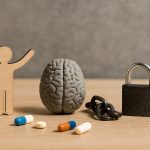You have probably noticed how often people talk about mental health now. It used to be a quiet topic, but things have changed. Hospitals, clinics, and health departments are now treating mental health as part of total wellness.
Licensed counselors play a key role in this shift. They support people through emotional stress, trauma, and recovery. They work alongside doctors and nurses to make sure care addresses both the mind and the body. As mental health challenges grow, so does the need for licensed counselors in public health systems.
1. Understanding Why Qualified Counselors Matter in Public Health
Public health systems reach people from all walks of life. Many deal with long-term stress, trauma, or chronic illness. Licensed counselors play a vital role in helping them manage emotional health, which in turn supports physical recovery.
To do this well, counselors need strong educational foundations. Their training teaches them how emotional well-being connects to physical health and how both influence overall wellness. That is why accreditation matters. Programs that meet national quality standards ensure that counselors graduate ready to work in real healthcare settings.
Professionals who study through CACREP accredited counseling programs receive this kind of focused preparation. These programs emphasize ethical practice, cultural awareness, and the integration of mental health care into broader public health efforts. Graduates leave ready to collaborate with doctors, nurses, and community leaders to deliver complete care.
When counselors bring that level of preparation into hospitals, clinics, and community programs, they help create systems that support the whole person—mind and body alike.
2. The Role of Counselors in Modern Healthcare Settings
Licensed counselors now hold many roles in public health systems. They provide therapy, help manage crises, and guide patients through emotional recovery. They support families who are dealing with chronic illness or major life changes.
In hospitals, counselors meet patients who are scared, tired, or unsure about the future. They help them manage anxiety and focus on healing. In community centers, counselors work with people facing poverty or substance abuse. In schools, they support students dealing with emotional challenges that affect learning.
Counselors also work closely with healthcare staff. Together, they design plans that treat both physical and emotional needs. This collaboration helps patients recover faster and stay healthier longer. Public health improves when counselors are part of the team.
3. The Rising Demand for Mental Health Support
The demand for mental health services keeps growing. The COVID-19 pandemic showed how stress and isolation affect everyone. Even after the crisis, many people still deal with anxiety and depression.
Health departments across the country report that they need more licensed counselors. From small towns to big cities, waiting lists for therapy are getting longer. More people are reaching out for help, but there are not enough trained professionals to meet the need.
Many states are adding funding to create more counseling jobs, especially in rural or underserved areas. This growth shows that public health systems now see mental wellness as vital to community health. The more licensed counselors there are, the more people can access care when they need it.
4. The Link Between Mental Health and Community Health
Mental health affects entire communities. When people struggle emotionally, it can lead to bigger issues like job loss, substance abuse, or family problems. These struggles often create ripple effects that impact local economies and public health systems.
Counselors help stop problems before they get worse. They provide early support and teach people to handle stress in healthy ways. By helping one person, they often improve the well-being of families and workplaces too.
When public health systems include counseling, everyone benefits. People recover faster, families stay stronger, and communities become more stable. In short, emotional health supports physical health and social balance.
5. Training, Licensure, and Professional Standards
Becoming a licensed counselor requires strong education and hands-on experience. Most start with a bachelor’s degree in psychology, social work, or a related field. Then they earn a master’s degree in counseling or mental health.
During their graduate studies, future counselors take courses on ethics, cultural understanding, and human development. They complete supervised internships where they work with real clients. After graduation, they take state exams to earn licensure.
Every state has its own rules, but the goal is always the same: to ensure that counselors are qualified and ethical. Licensed counselors also take continuing education courses to stay current. This ongoing training ensures that public health systems can trust their expertise.
Proper licensure means better care. It protects patients and gives communities confidence in their counseling professionals.
6. Challenges and Opportunities in the Public Health Workforce
Even though demand is high, there are not enough licensed counselors in many places. Rural and low-income areas often face the biggest shortages. People in these regions may wait months for an appointment or travel long distances to find help.
Telehealth is helping bridge the gap. Online counseling allows people to meet with professionals from their homes. It saves time, reduces travel, and reaches more people. Still, technology alone cannot solve the shortage. Public health systems need more trained counselors to meet the growing demand.
For students who want to make a difference, this field offers real opportunities. Working in public health gives counselors the chance to help entire communities, not just individuals. They can influence policy, improve care programs, and support wellness for people of all ages.
The growing need for licensed counselors in public health systems is clear. Mental health is just as important as physical health, and both depend on each other. Trained counselors bring compassion and skill to every part of healthcare. They help people heal, find balance, and live healthier lives.
As public health systems evolve, licensed counselors will remain a central part of care. Their work strengthens communities and makes health services more complete.
For anyone considering a career in counseling, the time is right to join this mission. With proper education and licensure, you can help build a future where everyone has access to mental health support.
Lynn Martelli is an editor at Readability. She received her MFA in Creative Writing from Antioch University and has worked as an editor for over 10 years. Lynn has edited a wide variety of books, including fiction, non-fiction, memoirs, and more. In her free time, Lynn enjoys reading, writing, and spending time with her family and friends.















